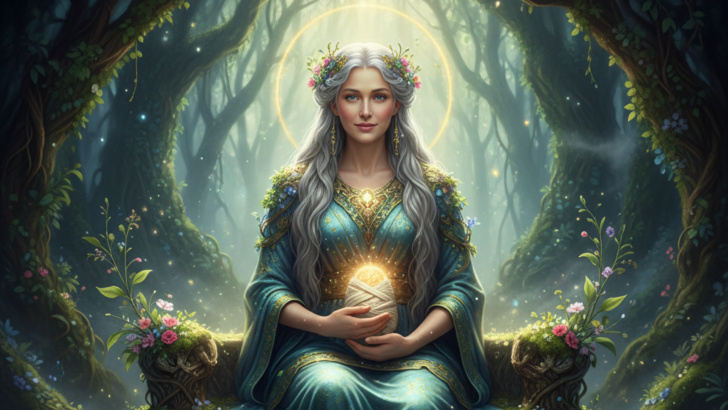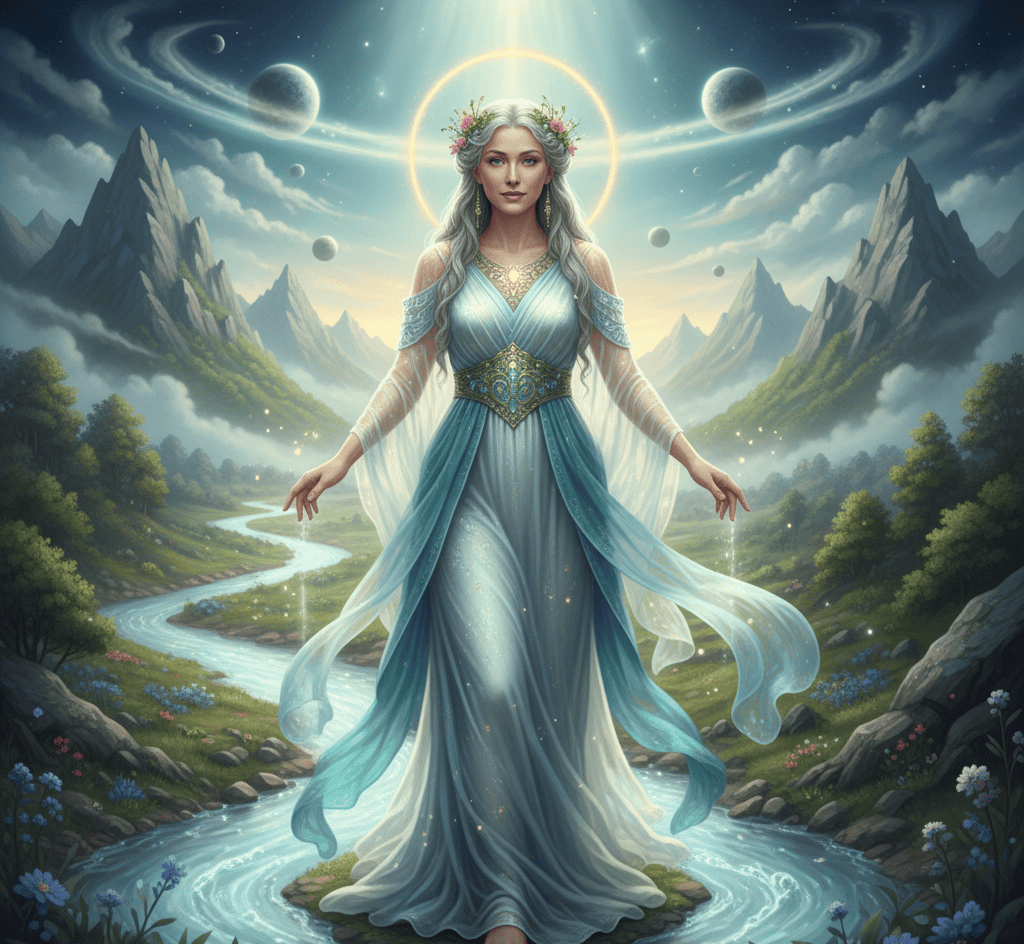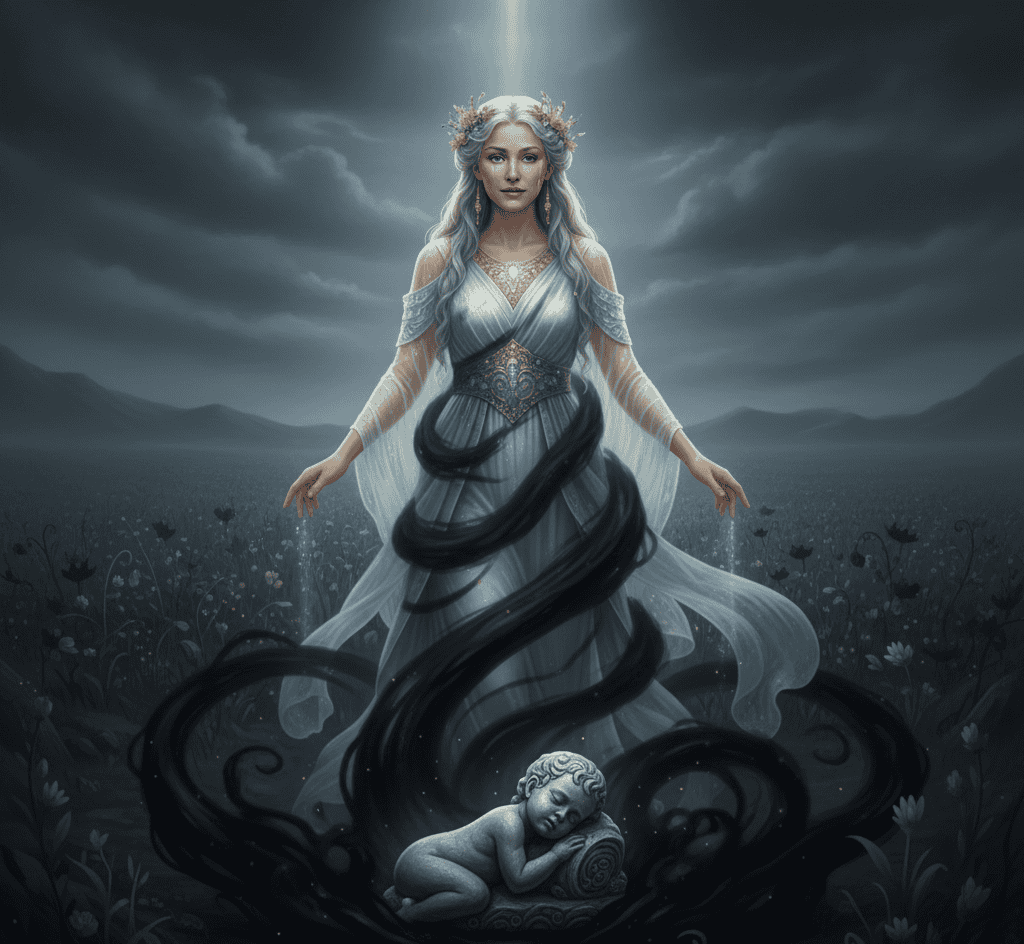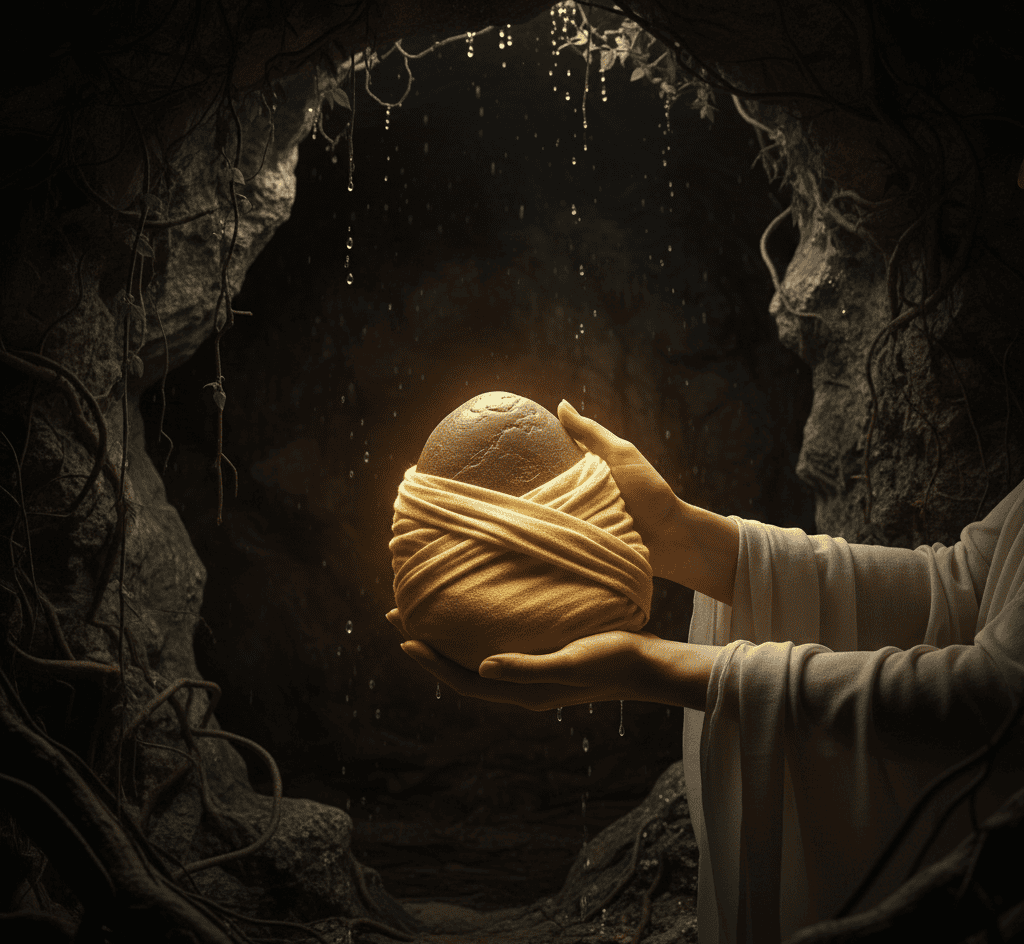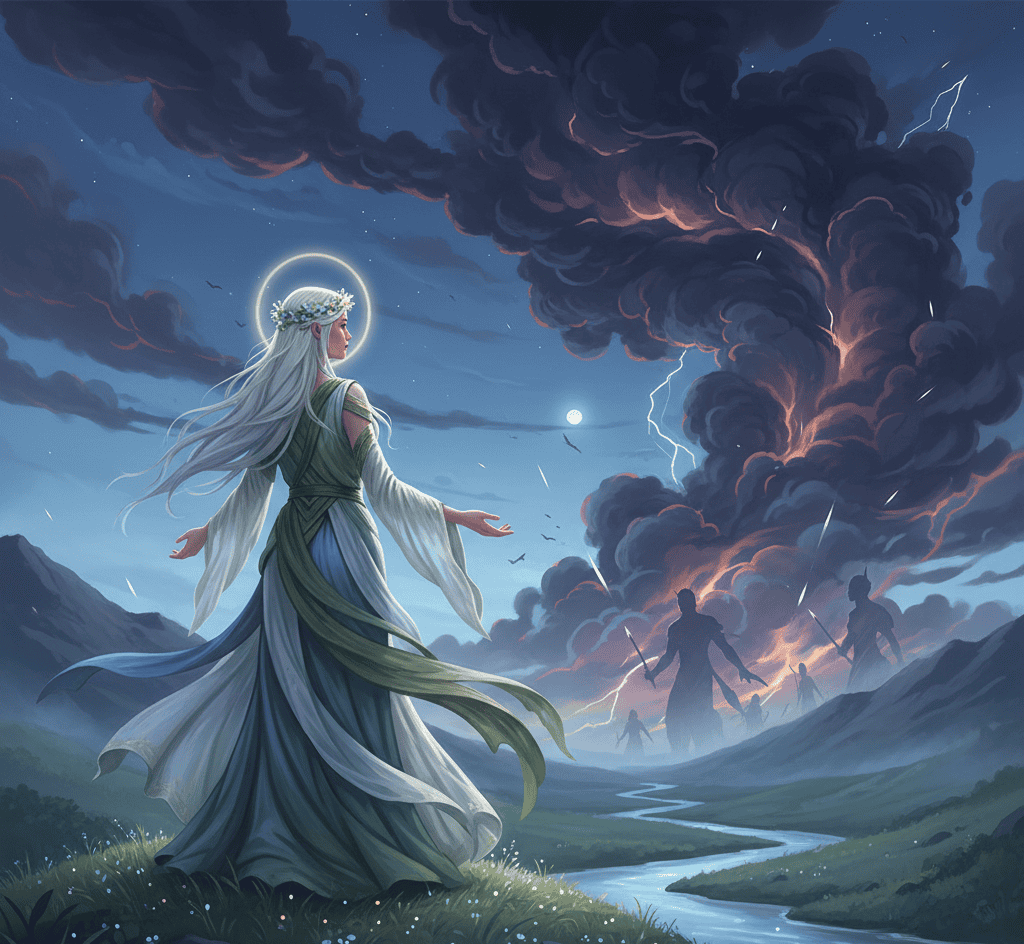Long before the world knew Zeus, Hera, Poseidon, and the Olympians, an older generation ruled the cosmos.
Among them stood Rhea, a Titaness whose name meant ease, flow, and the gentle movement of life.
She was not a queen who ruled with thunder or fire. She shaped the world quietly, guiding the rise of gods and protecting her children from the cruelty that came before them.
Rhea carried the weight of the cosmos through a mix of grace, sorrow, and fierce maternal strength.
Without her, the Olympians would never have survived, and the Greek pantheon would be almost unrecognizable.
Today, we explore who Rhea really was, what she endured, and why she remains one of the most important yet often overlooked figures in mythology.
Born Into a Cosmos Still Finding Its Shape
Rhea was born from Gaia, the earth, and Uranus, the sky, during a time when creation was still new and unstable.
The Titans were the first true generation of gods who shaped the world’s structure. Mountains grew, seas spread, winds formed, and stars settled into their places.
The Titans were vast beings with cosmic roles, each representing a force of nature or part of existence itself.
Rhea quickly became known for her calming presence. Her name was tied to flowing energy, the movement of cycles, and the rhythm of nature.
She was neither warlike nor distant. Instead, she represented continuity. She brought a sense of order to the chaotic early world.
Along with her sister Themis, she upheld balance, though in a gentler way. Where Themis embodied law, Rhea embodied life’s natural flow.
As she grew, she became a symbol of motherhood, not through worship or prophecy, but because everything around her seemed to grow more vibrant under her care.
Plants rooted themselves deeper, rivers ran clearer, and even the seasons shifted in smoother harmony. She was a quiet force, but a powerful one.
It was this strength that drew the attention of her brother Cronus, who would become both her partner and her greatest burden.
A Marriage That Shaped the Fate of the World
When Uranus was overthrown by his son Cronus, the Titans entered a new era. Cronus seized power and appointed Rhea as his queen.
At first, their rule brought stability. Together, they guided the earth, oceans, skies, and growing life below. For a time, the cosmos seemed to rest peacefully under the Titan kingdom.
But a prophecy soon shattered that peace. Just as Cronus had overthrown his father, it was foretold that one of his own children would overthrow him.
Cronus became consumed by fear, and fear became cruelty. Every time Rhea gave birth to a child, he swallowed the newborn whole.
Hestia, Demeter, Hera, Hades, and Poseidon all vanished into the depths of Cronus before they had the chance to cry for the first time.
For Rhea, this was a wound deeper than any blade could deliver. She had the power to shape nature, but she could not protect her own children.
Mothers in myth often suffer, but few suffer as silently and steadily as Rhea. Her grief spread into the world. Plants withered.
The seasons faltered. Even the earth seemed to tremble under the weight of her sorrow.
Yet she stayed by Cronus’s side because she needed to find a way to save the next child that fate promised.
She needed a plan, and her sixth child gave her a reason to fight.
The Child Who Changed Everything
When Rhea became pregnant for the sixth time, she left the kingdom of the Titans and sought refuge on the island of Crete.
There, hidden among mountains and forests, she gave birth to Zeus. She refused to lose another child.
With the help of Gaia, who had also suffered under Uranus, Rhea created a strategy that would alter the world forever.
She wrapped a stone in swaddling cloth and handed it to Cronus as if it were the newborn. Cronus swallowed it without question, believing he had outsmarted fate.
Meanwhile, Rhea hid Zeus in a sacred cave on Mount Ida. There, nymphs cared for him, the goat Amaltheia fed him, and warrior maidens danced loudly to drown out his cries so Cronus would never hear.
For the first time, Rhea felt hope return. Her youngest child grew in secret, raised by nature itself, far from the reach of the Titan king.
Rhea visited when she could, carrying gifts of warmth and strength, whispering encouragement to him through the wind.
When Zeus became older, he returned to face his father. With the help of Rhea and Gaia, he forced Cronus to release the swallowed children.
One by one, the Olympians emerged, reborn and furious, ready to begin a new era.
This uprising, the Titanomachy, would rage across the world. But without Rhea’s courage, it never would have begun.
The Titaness Who Chose Peace Over Power
Unlike many other Titans, Rhea did not fight in the war. Though she sided with Zeus, she did not take up arms.
She had no desire to harm her own family, nor to destroy the world she helped nurture. Instead, she acted as a mediator and a guide during the conflict.
Her siblings, Océanus and Themis, also avoided the war, and together they represented the calmer side of the Titans, those who valued order and balance rather than domination.
Rhea’s presence during this time became almost symbolic. She was the bridge between the fading Titan age and the rising Olympian age.
Without her, the transition would have been far more violent. After Zeus and the Olympians won, they did not punish Rhea.
Instead, they honored her. She became a respected elder goddess, a figure associated with motherhood, sanctuary, the earth’s gentle rhythms, and the protection of life.
She also became linked to Cybele, a Phrygian mother goddess with a similar role, and soon their identities blended in certain regions.
Both rode lions, both ruled mountains, and both were honored as powerful mothers who shaped civilization.
Rhea’s Quiet Legacy in the Ancient World
Worship of Rhea was widespread but calm. She was not a goddess of ecstatic frenzy like Dionysus or violent storms like Zeus.
Her rituals focused on well-being, growth, and protection. Shrines dedicated to her often sat near springs, mountain peaks, or fertile valleys.
People prayed to her for safe childbirth, healthy children, and balance in their homes.
Her symbols included lions, drums, pine trees, and chariots that moved like the cycles she represented.
Unlike other gods whose myths were filled with drama, Rhea’s stories embodied endurance.
She survived loss, planned wisely, and restored hope. Her influence shaped the divine family that would rule the Greek world. Every Olympian owed their freedom to her.
She is the mother of the gods, not because she simply gave birth, but because she protected them, preserved them, and guided them into the world.
Today, Rhea remains a reminder that strength does not always roar. Sometimes it flows. Sometimes it nurtures. Sometimes it endures quietly until the right moment comes.

Siempre sentí una fuerte conexión con lo Divino desde mi nacimiento. Como autora y mentora, mi misión es ayudar a los demás a encontrar el amor, la felicidad y la fuerza interior en los momentos más oscuros.

